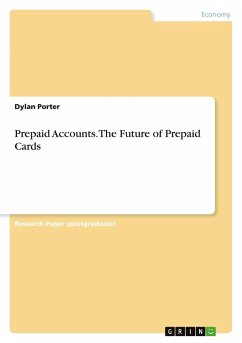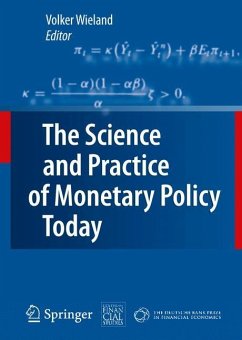Research Paper (postgraduate) from the year 2017 in the subject Economics - Monetary theory and policy, grade: B+, Suffolk University Law School, language: English, abstract: A Problem that United States citizens have had involve people incapable of establishing a bank account or getting a credit card due to the security of monetary transfers. To remedy this problem, Congress established the independent agency, the Consumer Financial Protection Bureau ("CFPB"), in the Dodd-Frank Act of 2010, who regulates monetary transfersi. The CFPB implemented the Prepaid Account Final Rule to accommodate prepaid cards. The fundamental concept of a prepaid card is simple. Money is loaded on to a card before someone spends it and that money entirely belongs to that person. Hence, the card is prepaid. A prepaid card functions as a prepaid account, but it is not a traditional bank account that is out of reach for anyone. The CFPB's Prepaid Account Final Rule amends Regulation E of the Electronic Fund Transfer Act by extending its coverage to prepaid accounts and adopting provisions specific to such accounts, and amends Regulation Z of the Truth in Lending Act byextending its coverage to overdraft credit features that are simultaneously offered with these prepaid accountsii. This has had a large effect on the prepaid market economically by impacting mobile wallets, peer-to-peer payment products, person-to-person transfers, and other electronic prepaid accounts that store fundsiii. The rule revolutionized payment instruments by steering methods for payment away from cash, checks, and credit and debit cards towards using prepaid cardsiv. This paper will provide the background of how the CFPB was able to propose this rule and how the Prepaid Account Proposed Rule developed into the Final Rule. It will focus on how the Final Rule impacts Regulation E's disclosure requirements, alternatives to periodic statements, posting account agreements, remittance transfers and limitationson liability, and how prepaid accounts accommodate Regulation Z's overdraft credit feature requirements to offer the credit feature alongside prepaid cards. It will explain how these amendments caused by the Final Rule will lead to the vast increase of people adopting and utilizing prepaid cards in the future. This paper will conclude with a summary of the benefits from the CFPB's Prepaid Account Final Rule altering Regulation E and Regulation Z in making it possible for prepaid cards to fit in with the American society.
Hinweis: Dieser Artikel kann nur an eine deutsche Lieferadresse ausgeliefert werden.
Hinweis: Dieser Artikel kann nur an eine deutsche Lieferadresse ausgeliefert werden.







